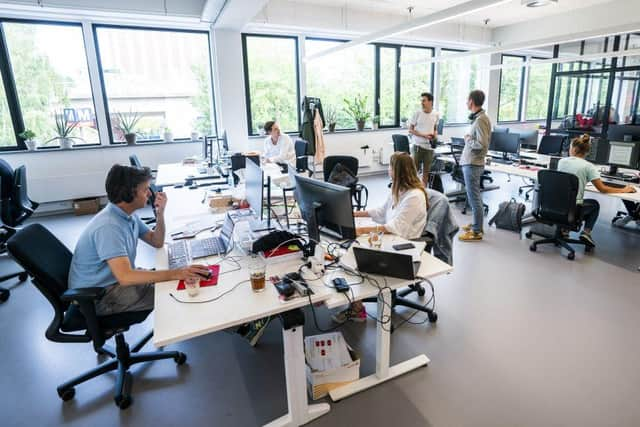Flexibility is key to successful hybrid working - Andrew Howie


Flexibility is key
The First Minister was quite clear that, whilst restrictions are easing, companies should be adopting a hybrid approach as opposed to calling their full workforce back to the office all the time.
Our approach at Grant Thornton has aligned with the guidance over the last two years, with us outlining our hybrid-working policy back in June 2020, just three months after the start of the pandemic. Having adopted the policy over 18 months ago, we believe work is no longer a location. Our approach to how we work is agile and we must learn and adapt as we go, taking the best of how we worked before the pandemic and retaining what we’ve learnt throughout the last year and a half. We believe businesses need to trust their employees – but also give them the necessary support to work flexibly, which they’ve become accustomed to.


Challenges of hybrid-working
Advertisement
Hide AdAdvertisement
Hide AdDespite Scotland’s mid-market being well adapted to hybrid-working now, and some starting to reap the benefits in terms of cost savings, a significant number of businesses are still encountering the same few issues they were almost two years ago. Hybrid-working needs time and commitment to be truly effective and there is no one size fits all approach. The whole market is on a learning curve to experiment and find the best method that works for them and ensure their people continue to feel connected and supported by their business and their teams, wherever they work.
In our recent survey of 47 mid-market businesses in Scotland, the most problematic hybrid-working challenge was managing the work of junior staff, with more than a third of respondents (38%) who were adopting hybrid working stating that this was an issue. Ensuring a high level of staff welfare was equally concerning, with the same number pointing to mental wellbeing issues such as reducing isolation and anxiety levels as being a challenge under the current circumstances. Given the management difficulties businesses have had to deal with, it’s unsurprising that reduced productivity was another hybrid working obstacle identified by 36% of business leaders taking this approach. Other challenges causing concern for the Scottish mid-market include the provision of training remotely (34%), having efficient technology to enable hybrid-working (32%) and loss of culture (30%).
The office still has a key role to play
We believe it’s important for all of us to spend some time in our offices to connect, collaborate and learn from one another. So most of us will work between 1-4 days per week in an office for collaboration and project work, and the rest of our working week from home or our clients, or wherever we need to, to deliver what’s needed. Our office spaces will remain the centre of gravity for the firm. We will predominantly use them to meet, collaborate and build relationships. Whilst predominantly working virtually from home or other locations for online meetings and concentrated work. Having this focus on the office, will help counteract the challenges of mentoring junior colleagues as well as supporting mental wellbeing across all offices. If the last two years have taught us anything – it is that we need to be agile in our working practices – and that the situation can constantly change. We continue to look for ways to evolve and improve our practices, whilst following government guidance.
Moving forward, Scottish businesses need to be open to evolving and challenging themselves as to how their hybrid working approach can be made more effective, such as through investing in new technology that helps teams to communicate and stay connected, and providing additional guidance on how work is organised and co-ordinated.
Andrew Howie, Grant Thornton’s Scotland Managing Partner
Comments
Want to join the conversation? Please or to comment on this article.